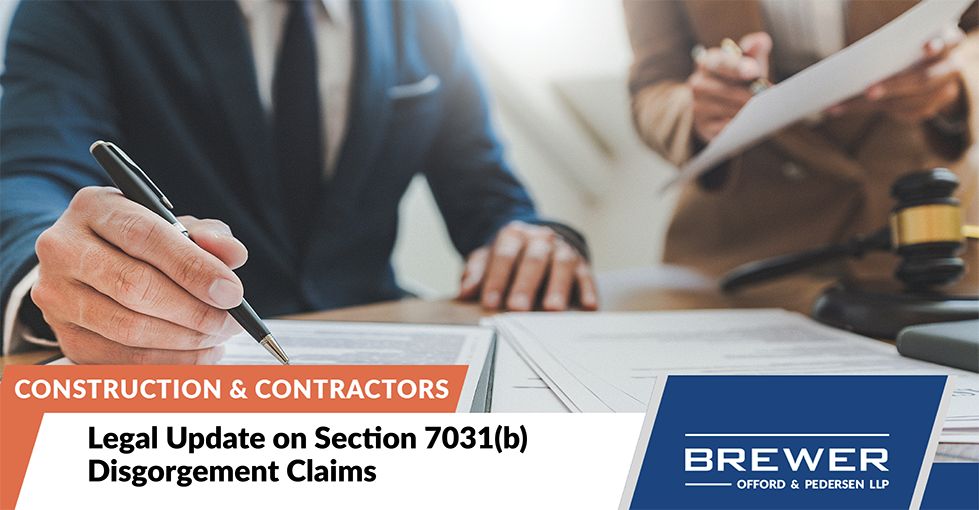Section 7031 was enacted as both a shield and a sword to deter unlicensed building contractors by (a) preventing them from bringing a claim for compensation for work performed that required a license, and (b) allowing any person who used the unlicensed person’s services to sue for all amounts paid, regardless of the contractor’s fault or whether the person was unjustly enriched by the contractor’s work.
A recently published case out of Los Angeles County, Eisenberg Village of the Los Angeles Jewish Home for the Aging v. Suffolk Construction Company, Inc. (Los Angeles County Super. Ct. No. LC100462, filed 8/26/2020.)[1] clarifies two (2) questions of first impression:
(1) What is the statute of limitations (deadline to bring suit) for a disgorgement against unlicensed contractors under Section 7031(b) of the Business and Professions Code (“Section 7031(b)”)? and
(2) When does a Section 7031(b) cause of action completely accrue?
Answering the first question, the appellate court cut the time to assert a Section 7031(b) claim to one-year after accrual.
Given that disgorgement is a liability created by statute, the applicable statute of limitation must be either three (3) years under Code Civil Procedure § 338(a) (if the disgorgement is not a penalty or forfeiture) or one-year Code Civil Procedure § 340(a) (if it is a penalty or forfeiture).
The court reasoned that “for reasons of policy (to deter contractors from operating without a valid license), [Section 7031(b)] provides a windfall to the plaintiff, at the expense of the unlicensed contractor, since the plaintiff also retains the work completed by the contractor”, it is clear that the disgorgement of Section 7031(b) is a penalty.
Answering the second, the court retained the traditional rule for accrual for Section 7031(b) disgorgement claims, namely, that a cause of action accrues “at the time when the cause of action is complete with all of its elements.”
It finally declined to extend the equitable ‘discovery rule’ to Section 7031(b) claims, where the statute of limitations only runs from when a diligent plaintiff knew or should have known about the claim.
By example, the court argued that if the ‘discovery rule’ were applied to an unlicensed contractor, a plaintiff could file a Section 7031(b) claim to get back compensation for a building in use, without incident, for over 10 years to conclude that “a section 7031(b) claim accrues upon the completion or cessation of the performance of the act or contract at issue.”
Now, but until and if the California Supreme Court grants review, it is important to ensure proper licensing in any construction you suspect may require a license. This decision now provides a defense as strict and hard as the disgorgement remedy itself against unlicensed work. A Section 7031(b) claim must be brought within the year.
It is now more important to make proper and required licensing an essential and continuing term, and prerequisite condition, to any contract to obtain the longer statute of limitations for fraud, breach of contract, or other claims.
[1] https://www.courts.ca.gov/opinions/documents/B297247.PDF
